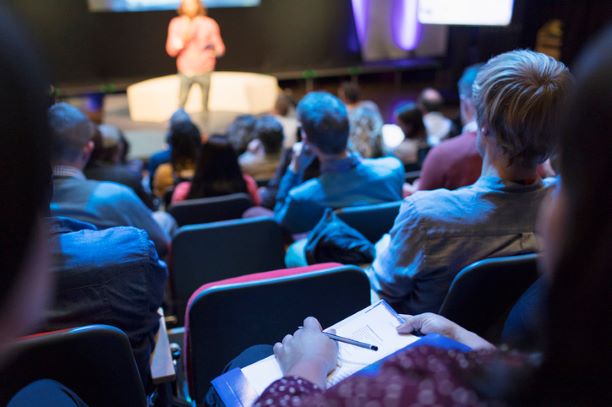
By Nicholas Sweeney
As pumpkin spice makes its way back onto the menus at local coffee shops, many people start thinking about the first days of the school year. But for the students and faculty of the Creative Writing & Poetics program at the University of Washington Bothell, the first thought on their minds is the Fall Convergence.
Held annually since its founding in 2012 by Jeanne Heuving, professor in the School of Interdisciplinary Arts & Sciences (IAS), the conference brings together UW Bothell students and renowned artists and writers to explore the question, “Why do we write how we write?”
This year marks a particularly exciting convergence, as UW Bothell has been selected to host the international &Now Festival. Held once every two years, universities across the country bid to host this prestigious event. The University of Notre Dame, Chapman University and University of Colorado Boulder have all served as hosts.
Combining the two events, UW Bothell will present &Now 2019: Points of Convergence, on Sept. 19 to 22. It is open to the public. Register for the conference.
What is &Now?
While &Now is recognized as a festival that celebrates contemporary literature, it has pushed the boundaries of what a literary conference can look like. Beyond the usual readings, academic discussions and Q&A panels, &Now includes digital experiments, dance, music and multimedia projects.
“With its focus on experimental practices and hybrid approaches to the presentation format, it is an inviting, accessible and vibrant space in which to see what poetics look like in action,” said Amaranth Borsuk, associate professor in IAS and lead organizer for Points of Convergence.
“&Now 2019 is a nexus for the discussion of what writing can look like in the age of the internet,” said Woogee Bae, alumna of the Creative Writing and Poetics Program. She became involved when Borsuk reached out seeking student involvement. “This festival can put UW Bothell on the map as one of the important players in this continuing conversation.”
Bridging connections
As its focus, &Now 2019 seeks to delve into the ways the arts might form convergences at a moment of social, cultural and political schism. “With things as divisive as they are in the world right now over religion, race and party lines, it’s so important to find the common areas where ideas can coexist,” Bae said.
“It’s about the divergences and convergences of systems, people and ideas,” said Ashley Noelle, a current MFA candidate. “The interdisciplinary nature of the art featured at this festival embodies those connections with the bridges they build across different art forms.”
This cross-disciplinary theme is exemplified by the keynote speakers for the event. LaTasha N. Nevada Diggs, interdisciplinary poet, vocalist and sound artist, illuminates the sonic qualities of language and the musicality of sentences. Barbara Browning, a writer, ethnographer and dancer, explores the idea of performative writing — writing that enacts the topic it describes. Browning is particularly interested in movement and dance and the ways writing can hold this fluid art form. Nathaniel Mackey, novelist, editor, poet and critic, examines the intersections between music and poetry. He has written extensively about the process of embodying jazz music.
“From sound performance, to dance, to music, these are writers for whom all arts intermingle,” said Borsuk. “If we are seeking a ‘point of convergence,’ I think their writing provides it!”
Other panelists will explore issues as far-reaching as psychology, digital poetics, synesthesia, movement and gender identity.
“No matter what you’re interested in, there is something at this conference for you,” said Bae.
Bigger than Bothell
“What I appreciate most about this conference is the focus on creating a space that wasn’t intended solely for academics,” Bae said. “From the first stages, we wanted this to be for more than just students and faculty. Amaranth and the rest of the faculty involved wanted to make &Now 2019 a place for the greater community.” In addition to Borsuk and Heuving; Maya Sonenberg, UW English professor, served on the organizing committee.
&Now 2019 also seeks to elevate artists who might otherwise be overlooked in a more traditional context. “At many conferences, there are only a few panels and off-site readings where their voices are heard,” said Borsuk. “Our event is a special opportunity for them to connect with like-minded artists.”
“There often isn’t a place for someone who wants to explore, for example, how biology can be its own form of poetry,” adds Bae. “Art doesn’t exist in a vacuum. &Now 2019 is a space where these disparate connections can be made.”



